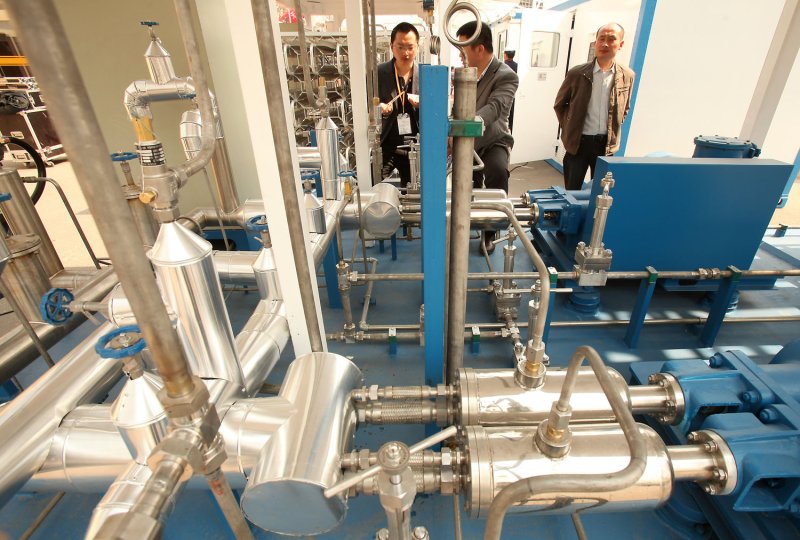Chinese businessmen visit an international natural gas equipment exhibition in Beijing on April 1, 2011. China just completed its first horizontal shale gas well, after 11 months of drilling, as the world's biggest energy consumer seeks to tap its reserves of the cleaner-burning fuel. China plans to triple the use of natural gas to about 10 percent of energy consumption by 2020 to help cut reliance on more-polluting oil and coal. UPI/Stephen Shaver |
License Photo
WASHINGTON, April 20 (UPI) -- Greenhouse gas emissions from natural gas-fired electricity are half that of coal, a report challenging claims from Cornell University argues.
A Cornell study published online in the journal Climatic Change argues methane leaking during shale gas production does more harm to the environment than burning coal.
A paper written by Gregory Staple, chief executive officer of American Clean Skies Foundation, and Joel Swisher, a director at Camco International, a climate change and sustainable development company, finds flaws in the Cornell study.
They claim the Cornell study used a "theoretical" model to compare the estimated greenhouse gas footprint of shale to coal.
"(T)he Staple-Swisher study found that, using the latest Department of Energy data on electricity generation, the fuel chain emissions from existing gas-fired power is still about 52 percent less GHG intensive on average than is existing coal-fired generation," they claim.
Natural gas emits half of the amount of carbon dioxide as coal. During extraction, however, methane is released, which is far more damaging to the environment than CO2, the Cornell study suggested.
The U.S. Energy Information Agency finds shale gas production will make up about half of the total natural gas production in the United States during the next 25 years.
U.S. lawmakers expressed concerns, meanwhile, that some of the chemical used during fracking, the process used to extract natural gas from shale rock formations, are carcinogenic or otherwise harmful.















